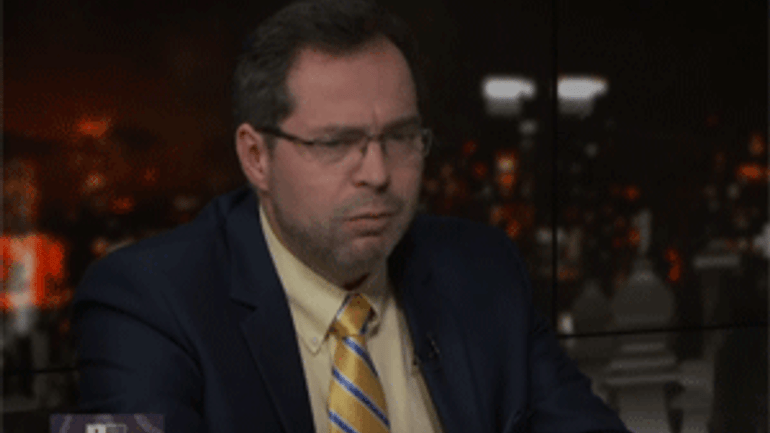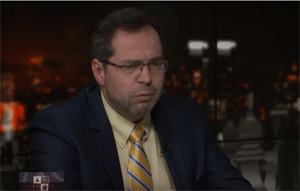Protestant Churches opposed the most to Russian World in Donbas

 Due to the fact that in the Soviet period Donbas was completely devoid of religion, new church movements and Protestant currents obtained the major influence already in the time of independent Ukraine. Therefore, when an armed conflict in the Donbas burst out, it was the Protestant organizations that began to oppose the "Russian world" which came there. After all, they could feel free only in Ukraine.
Due to the fact that in the Soviet period Donbas was completely devoid of religion, new church movements and Protestant currents obtained the major influence already in the time of independent Ukraine. Therefore, when an armed conflict in the Donbas burst out, it was the Protestant organizations that began to oppose the "Russian world" which came there. After all, they could feel free only in Ukraine.
Andriy Yurash, head of the Department of Religious Affairs of the Ministry of Culture, told this during the "Classics Game" show with Serhiy Rakhmanin on ZIK television channel.
“In 1990, the Institute of Sociology analyzed for the first time which religions have a Ukrainian affiliation. It turned out that the UOC communities were united with the Moscow Patriarchate. But despite this, the majority of the population said that they are still loyal to the Kyivan Patriarchate,” said Yurash.
In his opinion, the trend not only did not change, but exacerbated. They say, in 2014, about ten different studies were conducted, which showed that among the Orthodox the number of people associating themselves with the Kyivan Patriarchate increased twice. Accordingly, the number of those who see themselves in unity with the Moscow Patriarchate decreased as much.
“Undeniably, this is a tendency. After all, few people are aware of their true confessional affiliation, especially since the Church is called “Ukrainian Orthodox”. Therefore, now people are trying to bring their religious priorities in line with the realities of their daily church life. For that reason, there are transfers from one jurisdiction to another,” the expert believes.
He also touched on the themes of the Crimea and Donbas, which, in his words, in the Soviet time were two of the least religious regions.
“In Soviet times there were 14 parishes of the Moscow Patriarchate in Crimea, although only in Lviv there were as many as 16.
The Diocese of Lviv had in 1007 temples in 1988, unlike the Crimea, which was larger than Lviv region in population, but had fewer temples. The same trend was observed in Donbas, as this region was as completely devoid of religion. But when the churches began to open, radical Orthodox movements were actively engaged there,” Yurash said.
He also notes that in other regions of the country there is no such respect for the cult of Tsar Nicholas II and the royal family as it is in the east of Ukraine. This can be considered an unambiguous attribute of “Great Russian statehood” and an element of the “Russian World”.
“There are holidays and temples in Donbas that are dedicated to the royal family. They also organize religious processions for their commemoration. This can be considered an unambiguous attribute of the Great Russian statehood and an element of the "Russian world,” Yurash believes.
He also noticed that it was the Protestant churches and organizations that became the basis of resistance to the “Russian world” that entered the Donbas.
“In the time of Independence, new religious movements and Protestant movements entered the eastern part of Ukraine. In general, there was no region in the state where such influences would gain so much power. Therefore, Protestant churches and organizations became the resistance to the “Russian world” that came there. These organizations realized that their development, free existence and prosperity were possible only under the conditions of real freedom that only Ukraine could give them. Because of the aggression in the east, there were even two pastors and two parishioners killed in Slovyansk, and dozens of temples were seized,” he said.










